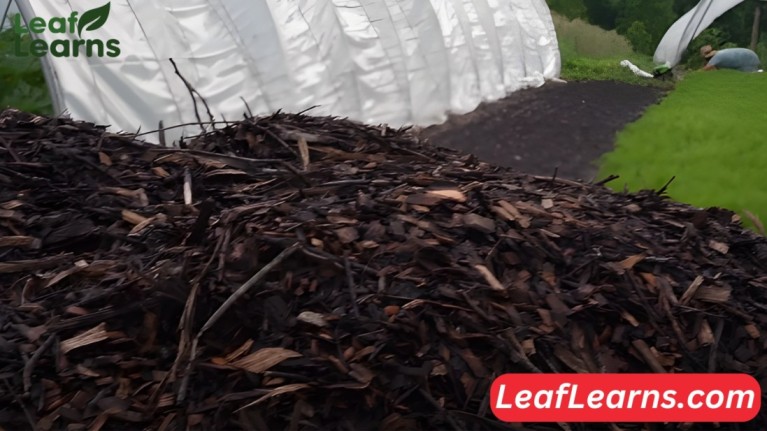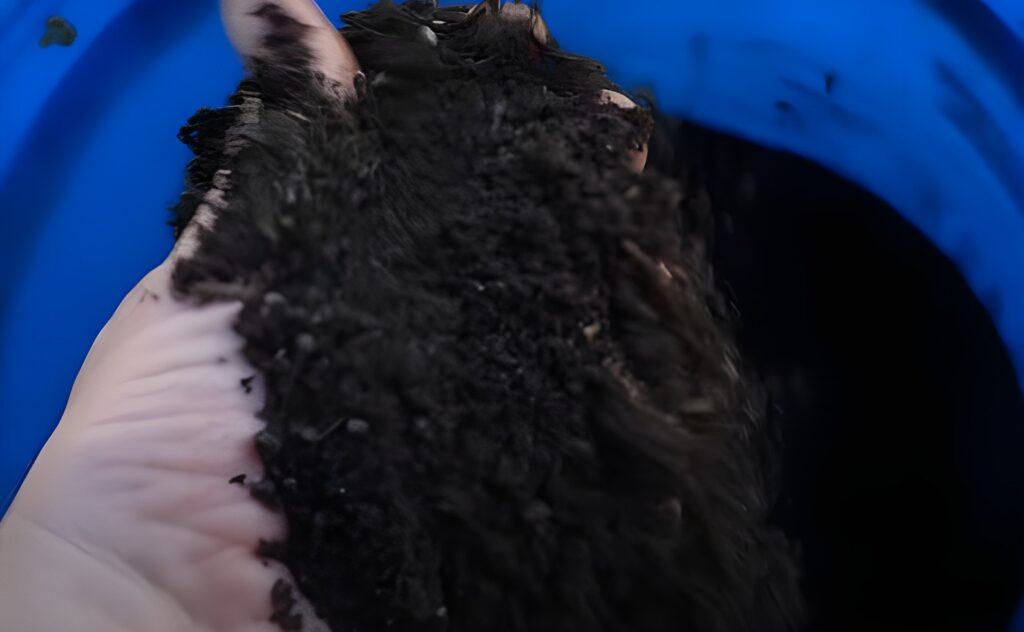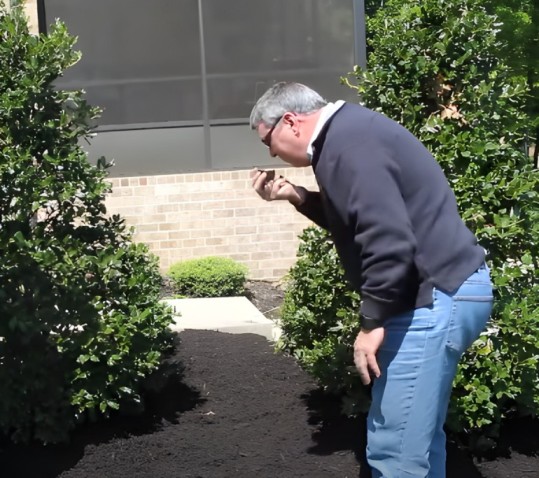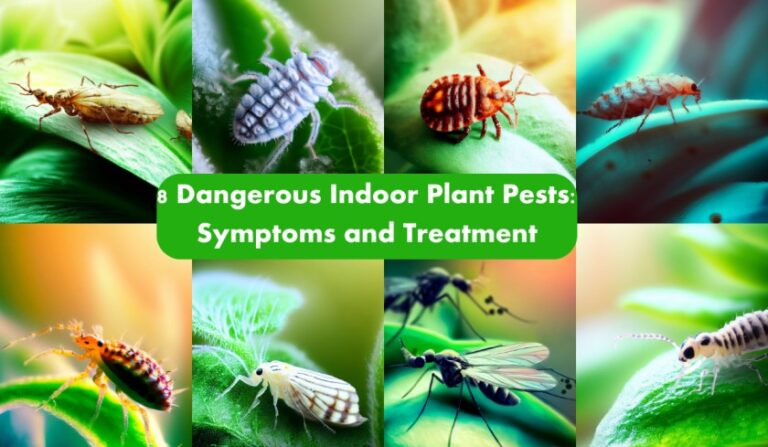Why Does Mulch Smell Bad? (How to Fix It) 2024
Does Mulch Smell Bad play a pivotal role in gardening and landscaping by offering numerous benefits. Apart from being comfortable for plants because of moisture retention and weed suppressions, mulch improves the health of plants and as a result, there are abundant landscapes.
So the question is Does mulch smell bad and the answer is that “Sure, mulch can have a bit of a smell, but that’s to be expected especially when it is breaking down. That is, because it releases methane gas, which gives off a rather awful smell, thus. However, with a handful of compost or a little change of mind, you can reduce the Itch and harvest the advantages it brings to your garden.

Contents
- 1 Understanding Mulch Odors
- 2 Problems Caused by Sour Mulch
- 3 Solutions to Eliminate Bad Odors
- 4 How to Fix Anaerobic Conditions in Mulch
- 5 Which is the Safest Mulch to Use?
- 6 Can Mulch Smell Make You Sick?
- 7 Toxic Mulch and the Presence of Harmful Chemicals
- 8 Understanding the Duration of Mulch Smell
- 9 Perceptions and Concerns Regarding Mulch Odors
- 10 Conclusion
- 11 FAQs
- 11.1 Does mulch always smell?
- 11.2 How long does manure smell last?
- 11.3 How long does mulch smell?
- 11.4 Which mulch smells the best?
- 11.5 Does mulch smell like rotten eggs?
- 11.6 Does mulch smell like poop?
- 11.7 Is the smell of mulch dangerous?
- 11.8 Does mulch smell go away?
- 11.9 How to remove smell from mulch?
- 11.10 Should You Remove Old Mulch?
- 11.11 Does Mulch Have Manure In It?
- 11.12 How Mulch Should Smell?
- 11.13 Why Does Mulch Smell – Moisture Levels and Soil Moisture
Understanding Mulch Odors
What Should Healthy Mulch Smell Like?
Picture the cozy perfume of moist leaves mixed with the earthy scent of newly churned dirt. That is the delightful melody of nutritious mulch!
This aroma is a sign of aerobic, vigorous decomposition, which releases bacteria that are good for your plants and vital nutrients.
Does Mulch Smell Bad? Blame Aero-Versus-Anaerobic!
However, occasionally mulch becomes bad and releases unpleasant smells. Who’s at fault? The ratio of anaerobic to aerobic conditions in the pile.
The rotten egg or sour smell is caused by bacteria that create strong gases like hydrogen sulphide or ammonia when there is not enough oxygen present in the environment (anaerobic).
In contrast, the earthy scent we adore is released during aerobic breakdown.
Problems Caused by Sour Mulch
Identifying the Causes of Unpleasant Odors
Colored Mulch That Smells Bad
Bright colors provide a splash of color, but some colored mulches smell strongly of chemicals. These are frequently caused by volatile organic compounds (VOCs), which are used to color fabrics.
You may preserve the environment and your nose by using eco-friendly colors or natural mulch.
Decomposition of Mulch Can Give Off Manure-Like Smell
The decomposition of mulch releases vital nutrients for plants, but it can also temporarily give off odors reminiscent of manure.
Usually, this natural process ends after a few weeks. Using a shovel to aerate the mulch speeds up decomposition and reduces odor.
Colored and Black Rubber Mulch Can Smell Bad
Rubber mulch that is colored and black, although useful, has the potential to retain moisture and heat, which fosters the growth of anaerobic bacteria.
A rotten egg or musty smell may result from this. The stink can be avoided by selecting lighter hues or by avoiding rubber mulch in places with inadequate drainage.
Solutions to Eliminate Bad Odors
How Do I Stop My Mulch from Smelling?
Avoid Storing your Mulch in Airtight Bags
Imagine an organic matter-filled, securely enclosed container not a formula for fresh air! Keep mulch away from airtight bags,
which retain moisture and provide the ideal environment for anaerobic decomposition, the source of that foul odour. Use open heaps or loose-weave bags to promote airflow and ward against the growth of odors.
Spread your Mulch Out to Dry
Consider moist mulch to be a haven for odors that you don’t desire. For a few days, sprinkle a thin layer of mulch after prolonged periods of rain or overwatering.
Warm air and sunshine do a great job of drying up wet mulch, fostering the growth of good bacteria, and inhibiting the growth of odor-causing ones.
Fluff Up Your Mulch to Get Rid of Bad Smell
Think of your mulch as a closely packed dance floor not good for the movement of oxygen! Take a garden fork or rake and do the aeration tango.
Regularly fluffing up your mulch promotes better air circulation, which lets good bacteria thrive and break down effectively, bringing an end to unpleasant odors in a rhythmic manner.
How to Fix Anaerobic Conditions in Mulch

What Is The Best Natural Mulch?
Cedar Bark Chips: In addition to being highly effective at retaining moisture and suppressing weeds, cedar bark chips also have naturally fragrant qualities that help cover up offensive smells.
Because of its fibrous nature, which encourages air circulation, anaerobic conditions are less likely to occur.
Pine Tree Bark/Straws: Cedar bark chips are not unlike from pine tree bark or straws. Because of their gritty texture, which promotes good ventilation, moisture accumulation and the start of anaerobic decomposition are avoided.
Mulch made from pine also has a nice scent that adds to the general atmosphere of the garden.
Compost: One nutrient-rich and adaptable mulching alternative is compost. Compost enhances soil structure and increases microbial activity in mulch beds, which facilitates aerobic breakdown.
By improving soil aeration, this organic matter lowers the possibility of anaerobic conditions and unpleasant odors.
Grass Clippings: Grass clippings are a great natural mulch substitute, particularly for vegetable plants. Grass clippings, when added in thin layers, aerate the soil and quickly decompose to feed it with vital nutrients.
By guaranteeing an adequate oxygen supply, rotating grass clippings on a regular basis help prevent anaerobic conditions.
Pine Bark Mini Nuggets: Because of its superior drainage capabilities, pine bark tiny nuggets are perfect for locations that frequently flood.
Because of their gritty texture, which encourages air movement beneath the mulch layer, anaerobic conditions, and bad odors are avoided.
Cypress Mulch: Mulch made from cypress is well known for being long-lasting and decay-resistant. Because of its fiber structure, there is enough ventilation, which lowers moisture retention and prevents anaerobic breakdown.
In addition to providing a cosmetic touch to landscape projects, cypress mulch efficiently blocks out unpleasant odors.
Which is the Safest Mulch to Use?
Selecting organic mulch choices from reliable vendors, such as wood chips, straw, or compost, is the safest way to mulch your garden.
You can be sure that your family, pets, and plants are in a healthy atmosphere since these natural materials are devoid of toxic chemicals.
Can Mulch Smell Make You Sick?
Mulch smells can cause a variety of emotions, but can it really make you sick? Mulch smells are generally unpleasant but not dangerous to health.
However, sensitive people may have headaches, nausea, and respiratory problems after being exposed to strong odors for an extended period of time, particularly from decaying mulch.
If your mulch smells bad, you should take immediate action to stop any pain. Choosing well-managed and aerated mulch may reduce health hazards and make gardening safer for everyone.
Toxic Mulch and the Presence of Harmful Chemicals
Even while mulch is typically regarded as safe, certain types could include poisons or dangerous substances. Using treated wood or mulch with artificial chemicals like insecticides or dyes can produce toxic mulch.
These substances have the potential to seep into the ground, endangering people, animals, and plants.
To reduce possible damage, choose organic mulch choices from reliable vendors, such as wood chips, straw, or compost.
Understanding the Duration of Mulch Smell
When it comes to the duration of the mulch smell, homeowners often wonder how long they’ll have to endure the scent.
The longevity varies depending on factors such as the type of mulch used and environmental conditions. Cedar mulch, known for its pleasant aroma, tends to retain its scent longer compared to other types.
Fresh mulch, regardless of type, typically emits a strong odor that can last for several days to a few weeks. Rubber mulch, on the other hand, might release a noticeable smell, especially when it gets hot, but it tends to dissipate over time.

Perceptions and Concerns Regarding Mulch Odors
While some homeowners appreciate the natural earthy scent of mulch, others are concerned about negative perceptions associated with it. Questions arise about why mulch smells bad or why it resembles manure or other unpleasant odors.
Factors such as decomposition processes and microbial activity contribute to these smells, with some types of mulch emitting stronger odors than others.
Despite these concerns, mulch serves essential purposes in landscaping, and understanding its scent variations helps homeowners make informed choices about their outdoor environments.
Conclusion
Mulch is essential for landscaping and gardening because it retains moisture and reduces erosion, among other advantages.
Because of its environmentally beneficial qualities, it is crucial for sustainable gardening methods that promote colorful landscapes.
It’s important to understand the scents of mulch since anaerobic conditions may produce unpleasant odors, but healthy mulch has a lovely earthy aroma. For your garden to be safe and healthy, choose organic mulch choices like compost or wood chips.
FAQs
Does mulch always smell?
No, the smell of new mulch is often earthy and either neutral or moderately pleasant. However, unpleasant odors might arise under specific circumstances.
How long does manure smell last?
The pungent smell of fresh manure progressively fades over many weeks, contingent upon variables such as moisture content and ventilation. Older manure smells very little to nothing.
How long does mulch smell?
The scent of newly laid mulch wears off after a few days or weeks. Odors that are unpleasant usually signify anaerobic conditions and need to be handled.
Which mulch smells the best?
This is arbitrary! The pleasant woodsy or chocolaty scents of cedar, cypress, and cocoa bean mulch are common. While composted mulch has an earthy fragrance, pine bark can have a stronger perfume.
Does mulch smell like rotten eggs?
Anaerobic conditions in mulch can produce hydrogen sulfide gas, causing a rotten egg smell. Aerate the mulch or consider alternatives.
Does mulch smell like poop?
Methane gas from decomposition can provide an odor akin to manure, much like in the previous example. Take care of the aeration and moisture levels.
Is the smell of mulch dangerous?
Mulch has strong, disagreeable smells that are more of an annoyance than a threat. But they also point to a plant-unhealthy atmosphere.
Does mulch smell go away?
Yes, the fragrance of new mulch eventually disappears. Use odor-absorbing products, aerate the mulch, or change moisture levels to get rid of any offensive odors.
How to remove smell from mulch?
To increase drainage, mix in compost, add wood chips or dry leaves, or turn the mulch to aerate it. Should the odor continue, you could want to replace the mulch.
Should You Remove Old Mulch?
Not always! You may leave well-maintained old mulch in situ to break down and enrich the soil. Remove only if it gets compacted or exhibits anaerobic conditions.
Does Mulch Have Manure In It?
Not often. The majority of mulch is composed of recyclable materials, wood chips, bark, and leaves. Though it shouldn’t smell strongly, some commercially sold “composted mulch” may include composted manure.
How Mulch Should Smell?
An earthy, subtle aroma characterizes healthy mulch. Mulch that smells strongly or disagreeably a sign of anaerobic conditions should be avoided.
Why Does Mulch Smell – Moisture Levels and Soil Moisture
Unpleasant smells are caused by anaerobic conditions in mulch that are caused by excessive wetness. Keep the soil well-drained and refrain from overwatering.






